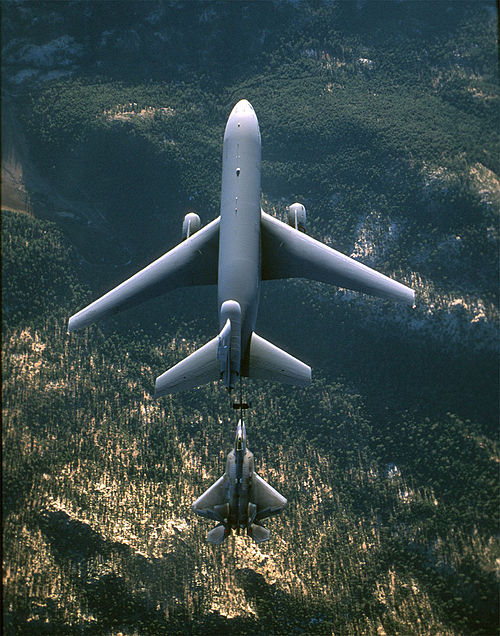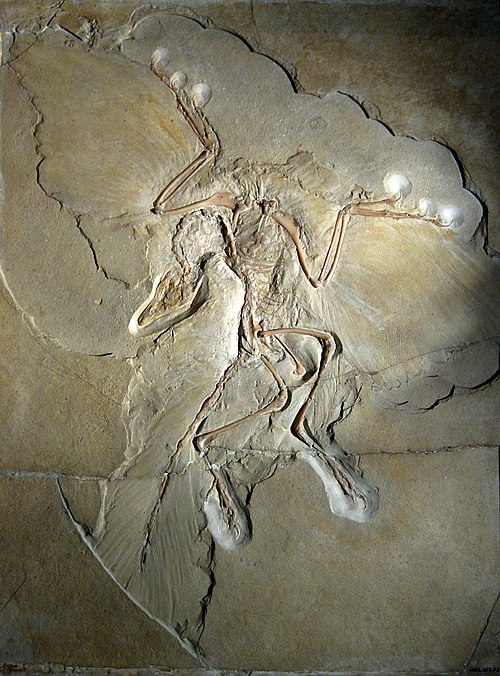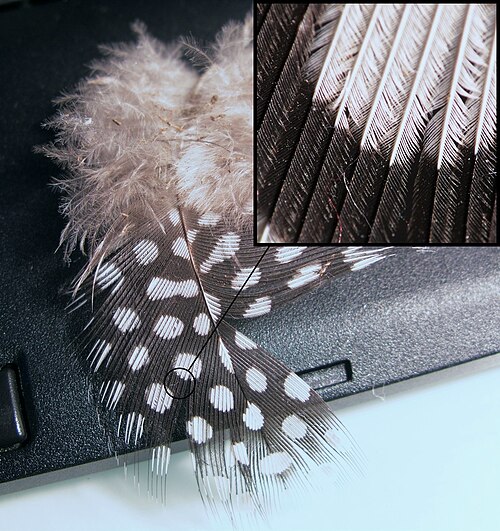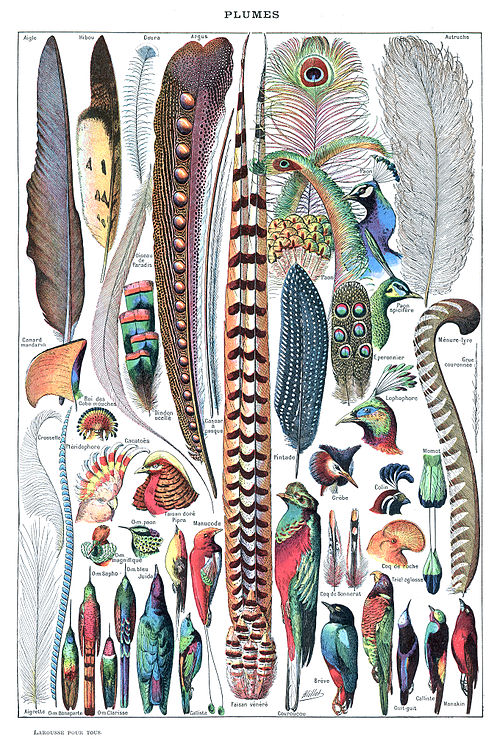Wingnoun
An appendage of an animal's (bird, bat, insect) body that enables it to fly; a similar fin at the side of a ray or similar fish
Wingnoun
(slang) Human arm.
Wingnoun
(aviation) Part of an aircraft that produces the lift for rising into the air.
Wingnoun
One of the large pectoral fins of a flying fish.
Wingnoun
One of the broad, thin, anterior lobes of the foot of a pteropod, used as an organ in swimming.
Wingnoun
(botany) Any membranaceous expansion, such as that along the sides of certain stems, or of a fruit of the kind called samara.
Wingnoun
(botany) Either of the two side petals of a papilionaceous flower.
Wingnoun
A side shoot of a tree or plant; a branch growing up by the side of another.
Wingnoun
Passage by flying; flight.
Wingnoun
Motive or instrument of flight; means of flight or of rapid motion.
Wingnoun
A part of something that is lesser in size than the main body, such as an extension from the main building.
Wingnoun
Anything that agitates the air as a wing does, or is put in winglike motion by the action of the air, such as a fan or vane for winnowing grain, the vane or sail of a windmill, etc.
Wingnoun
An ornament worn on the shoulder; a small epaulet or shoulder knot.
Wingnoun
A cosmetic effect where eyeliner curves outward and ends at a point.
Wingnoun
A fraction of a political movement. Usually implies a position apart from the mainstream center position.
Wingnoun
An organizational grouping in a military aviation service:
Wingnoun
(British) A unit of command consisting of two or more squadrons and itself being a sub-unit of a group or station.
Wingnoun
(US) A larger formation of two or more groups, which in turn control two or more squadrons.
Wingnoun
(British) A panel of a car which encloses the wheel area, especially the front wheels.
Wingnoun
(nautical) A platform on either side of the bridge of a vessel, normally found in pairs.
Wingnoun
(nautical) That part of the hold or orlop of a vessel which is nearest the sides. In a fleet, one of the extremities when the ships are drawn up in line, or when forming the two sides of a triangle.
Wingnoun
(sports) A position in several field games on either side of the field.
Wingnoun
(sports) A player occupying such a position, also called a winger
Wingnoun
A háček.
Wingnoun
(theater) One of the unseen areas on the side of the stage in a theatre.
Wingnoun
(in the plural) The insignia of a qualified pilot or aircrew member.
Wingnoun
A portable shelter consisting of a fabric roof on a frame, like a tent without sides.
Wingnoun
On the Enneagram, one of the two adjacent types to an enneatype that forms an individual's subtype of his or her enneatype
Wingverb
(transitive) To injure slightly (as with a gunshot), especially in the wing or arm.
Wingverb
(intransitive) To fly.
Wingverb
To add a wing (extra part) to.
Wingverb
(transitive) To act or speak extemporaneously; to improvise; to wing it.
Wingverb
(transitive) To throw.
Wingverb
(transitive) To furnish with wings.
Wingverb
(transitive) To transport with, or as if with, wings; to bear in flight, or speedily.
Wingverb
(transitive) To traverse by flying.
Wingnoun
One of the two anterior limbs of a bird, pterodactyl, or bat. They correspond to the arms of man, and are usually modified for flight, but in the case of a few species of birds, as the ostrich, auk, etc., the wings are used only as an assistance in running or swimming.
Wingnoun
Any similar member or instrument used for the purpose of flying.
Wingnoun
Passage by flying; flight; as, to take wing.
Wingnoun
Motive or instrument of flight; means of flight or of rapid motion.
Wingnoun
Anything which agitates the air as a wing does, or which is put in winglike motion by the action of the air, as a fan or vane for winnowing grain, the vane or sail of a windmill, etc.
Wingnoun
An ornament worn on the shoulder; a small epaulet or shoulder knot.
Wingnoun
Any appendage resembling the wing of a bird or insect in shape or appearance.
Wingnoun
One of two corresponding appendages attached; a sidepiece.
Wingnoun
Any surface used primarily for supporting a flying machine in flight, especially the flat or slightly curved planes on a heavier-than-air aircraft which provide most of the lift. In fixed-wing aircraft there are usually two main wings fixed on opposite sides of the fuselage. Smaller wings are typically placed near the tail primarily for stabilization, but may be absent in certain kinds of aircraft. Helicopters usually have no fixed wings, the lift being supplied by the rotating blade.
Wingnoun
One of two factions within an organization, as a political party, which are opposed to each other; as, right wing or left wing.
Wingnoun
An administrative division of the air force or of a naval air group, consisting of a certain number of airplanes and the personnel associated with them.
Wingverb
To furnish with wings; to enable to fly, or to move with celerity.
Wingverb
To supply with wings or sidepieces.
Wingverb
To transport by flight; to cause to fly.
Wingverb
To move through in flight; to fly through.
Wingverb
To cut off the wings of or to wound in the wing; to disable a wing of; as, to wing a bird; also, [fig.] to wound the arm of a person.
Wingnoun
a movable organ for flying (one of a pair)
Wingnoun
one of the horizontal airfoils on either side of the fuselage of an airplane
Wingnoun
a stage area out of sight of the audience
Wingnoun
a unit of military aircraft
Wingnoun
the side of military or naval formation;
Wingnoun
a hockey player stationed in a forward positin on either side
Wingnoun
the wing of a fowl;
Wingnoun
a barrier that surrounds the wheels of a vehicle to block splashing water or mud;
Wingnoun
an addition that extends a main building
Wingverb
travel through the air; be airborne;
Wing
A wing is a type of fin that produces lift while moving through air or some other fluid. Accordingly, wings have streamlined cross-sections that are subject to aerodynamic forces and act as airfoils.
Feathernoun
A branching, hair-like structure that grows on the bodies of birds, used for flight, swimming, protection and display.
Feathernoun
Long hair on the lower legs of a dog or horse, especially a draft horse, notably the Clydesdale breed. Narrowly only the rear hair.
Feathernoun
One of the fins or wings on the shaft of an arrow.
Feathernoun
A longitudinal strip projecting from an object to strengthen it, or to enter a channel in another object and thereby prevent displacement sideways but permit motion lengthwise; a spline.
Feathernoun
Kind; nature; species (from the proverbial phrase "birds of a feather").
Feathernoun
One of the two shims of the three-piece stone-splitting tool known as plug and feather or plug and feathers; the feathers are placed in a borehole and then a wedge is driven between them, causing the stone to split.
Feathernoun
The angular adjustment of an oar or paddle-wheel float, with reference to a horizontal axis, as it leaves or enters the water.
Featherverb
To cover or furnish with feathers.
Featherverb
To arrange in the manner or appearance of feathers.
Featherverb
To rotate the oars while they are out of the water to reduce wind resistance.
Featherverb
(aeronautics) To streamline the blades of an aircraft's propeller by rotating them perpendicular to the axis of the propeller when the engine is shut down so that the propeller does not windmill during flight.
Featherverb
To finely shave or bevel an edge.
Featherverb
(computer graphics) To intergrade or blend the pixels of an image with those of a background or neighboring image.
Featherverb
To adorn, as with feathers; to fringe.
Featherverb
To render light as a feather; to give wings to.
Featherverb
To enrich; to exalt; to benefit.
Featherverb
To tread, as a cock.
Featherverb
(snooker) To accidentally touch the cue ball with the tip of the cue when taking aim
Feathernoun
One of the peculiar dermal appendages, of several kinds, belonging to birds, as contour feathers, quills, and down.
Feathernoun
Kind; nature; species; - from the proverbial phrase, "Birds of a feather," that is, of the same species.
Feathernoun
The fringe of long hair on the legs of the setter and some other dogs.
Feathernoun
A tuft of peculiar, long, frizzly hair on a horse.
Feathernoun
One of the fins or wings on the shaft of an arrow.
Feathernoun
A longitudinal strip projecting as a fin from an object, to strengthen it, or to enter a channel in another object and thereby prevent displacement sidwise but permit motion lengthwise; a spline.
Feathernoun
A thin wedge driven between the two semicylindrical parts of a divided plug in a hole bored in a stone, to rend the stone.
Feathernoun
The angular adjustment of an oar or paddle-wheel float, with reference to a horizontal axis, as it leaves or enters the water.
Featherverb
To furnish with a feather or feathers, as an arrow or a cap.
Featherverb
To adorn, as with feathers; to fringe.
Featherverb
To render light as a feather; to give wings to.
Featherverb
To enrich; to exalt; to benefit.
Featherverb
To tread, as a cock.
Featherverb
To grow or form feathers; to become feathered; - often with out; as, the birds are feathering out.
Featherverb
To curdle when poured into another liquid, and float about in little flakes or "feathers;" as, the cream feathers.
Featherverb
To turn to a horizontal plane; - said of oars.
Featherverb
To have the appearance of a feather or of feathers; to be or to appear in feathery form.
Feathernoun
the light horny waterproof structure forming the external covering of birds
Feathernoun
turning an oar parallel to the water between pulls
Featherverb
join tongue and groove, in carpentry
Featherverb
cover or fit with feathers
Featherverb
turn the paddle; in canoeing
Featherverb
turn the oar, while rowing
Featherverb
grow feathers;
Feather
Feathers are epidermal growths that form a distinctive outer covering, or plumage, on dinosaurs, both avian (bird) and some non-avian (non-bird) and possibly other archosauromorphs. They are considered the most complex integumentary structures found in vertebrates and a premier example of a complex evolutionary novelty.






























